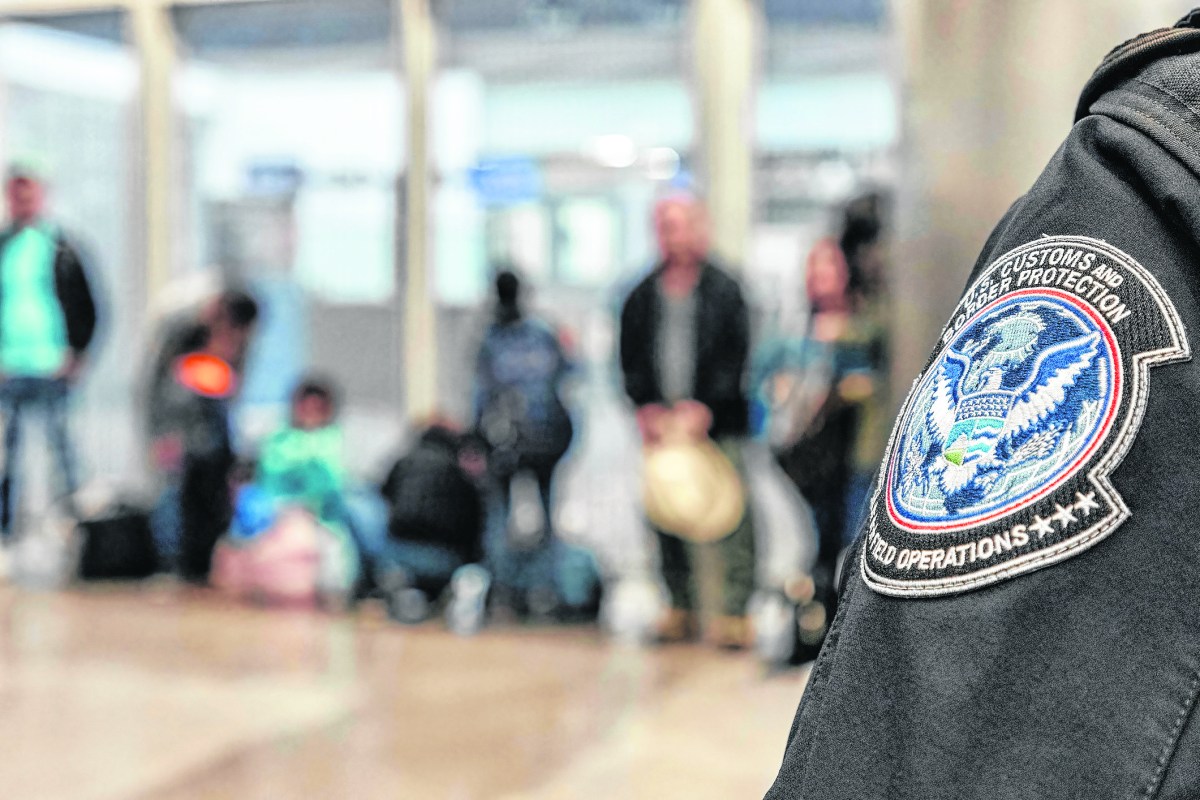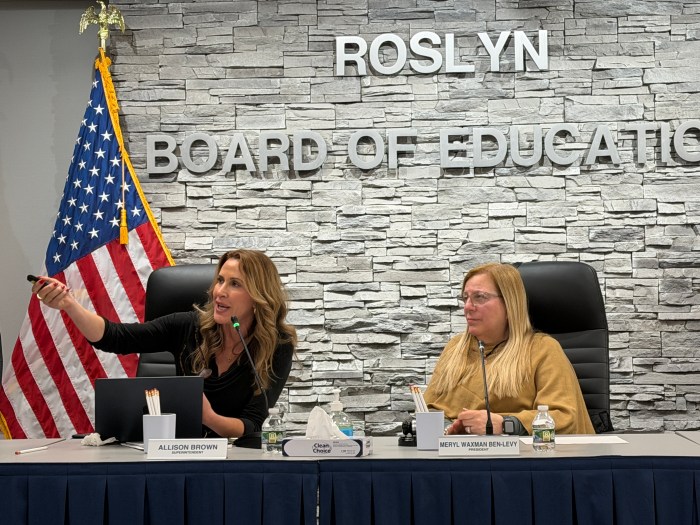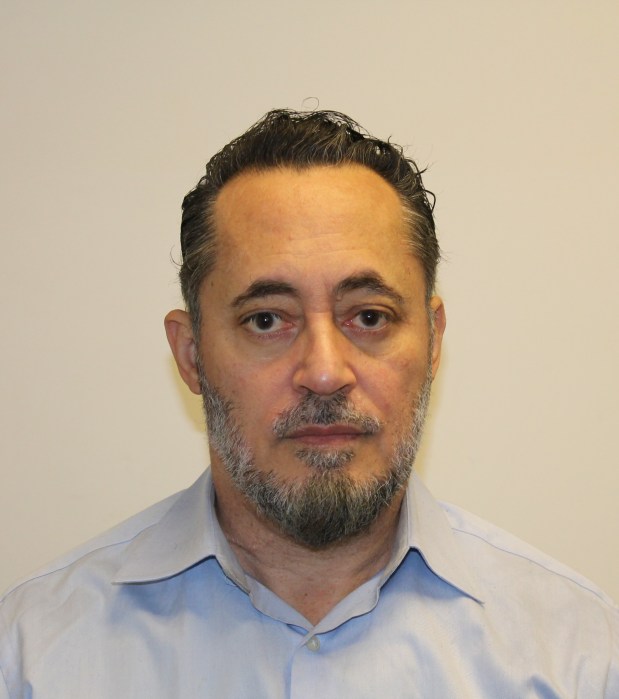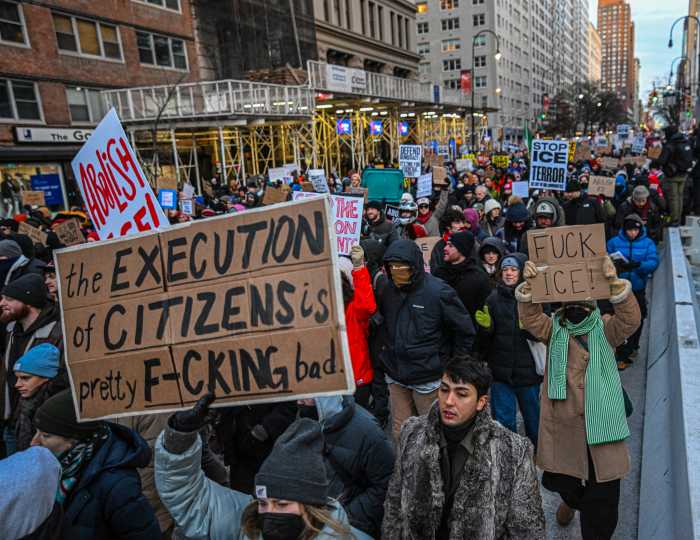Yader Salgado, a native of Nicaragua and sexton at Trinity Episcopal Church in Northport, went to school in Northport and returned to Nicaragua. He then as an adult was sponsored to come back to the U.S. under a humanitarian parole program.
Salgado was given a two-year stay per that “humanitarian parole” program, living in Northport with his wife and two children, while applying for asylum. He lived in that kind of limbo at peace, until recently.
Then, in March, Salgado got a letter from the United States Department of Homeland Security, saying his “parole” had been revoked and he and his family would have to leave by April 24.
“His asylum parole will be terminated, and now he and his wonderful family face an unimaginable separation,” Father Andrew Garnett of the Trinity Episcopal Church wrote. “This separation is one that would tear him from the community he has worked so hard to serve.”
The “humanitarian parole” program that had allowed half a million people from countries like Cuba, Haiti, Nicaragua and Venezuela to stay in the United States temporarily but legally was being revoked.
While protests and coverage and print followed, the big change came in court. The U.S. District Court in Massachusetts issued an injunction, enjoining President Donald Trump’s administration from revoking this humanitarian parole program, including Salgado.
“He’s pending in asylum and has the parole he was given, when he came in,” said Martin Rosenow, an immigration attorney who advised Salgado. “He has humanitarian parole for about another year, and he has an asylum claim that allows him to remain in a lawful stay until he’s called for an interview.”
Rosenow said if his request is approved, he becomes a resident.
“If he loses, he has another chance before an immigration court,” Rosenow said. “He’s in a lawful state. He has legal status.”
Facing changing rules and a fear of raids, many immigrants on Long Island with uncertain or changing legal status are doing what they can to lie low. Some are avoiding school, work and even shopping, due to concerns over escalating efforts to deport undocumented immigrants.
“People are not going to the grocery store, not sending their kids to school. People are afraid to go to work. They’re scared,” said Susan Gottehrer, the New York Civil Liberties Union (NYCLU) Director of the Nassau County Regional Office. “Things are happening. I can’t talk about specific cases.”
Long Island has long had a large immigrant population, including many with clear, legal status and others who face changing regulations and status. In 2023, 22.8% of Nassau County’s population and 16% of Suffolk County’s were born abroad.
Estimates from the Migration Policy Institute indicate that there are at least 50,000 with illegal status in Nassau alone, although those numbers can be changing as programs end or change.
About 30,000 are from Mexico and Central America, 4,000 from the Caribbean, 7,000 from South America, 8,000 from Asia, and 1,000 from Europe and Canada. Of those, about 18,000 or 36% are from El Salvador, 7,000 or 13% are from Honduras and 3,000 or 7% are from Guatemala.
“We know that there has been a presence (of ICE). And the community is in hiding,” Gottehrer said of a ramp up in enforcement. “And we do know there have been instances where workplaces have been visited.”
The Nassau County Police said 10 officers were deputized to cooperate and work with Immigration and Customs Enforcement (ICE). Documents indicate that agreement is open-ended and not limited to 10.
“We know there is a presence on Long Island and the Nassau County Police Department and sheriff’s department have a 287(g) agreement,” Gottehrer said. “They would accompany ICE to a site, to secure it, they would say. Now these agreements formalize that they are not only cooperating with ICE, but doing the work of ICE.”
ICE says this cooperation “helps you keep your community safe from potentially dangerous criminal aliens” by giving law enforcement officers “access to ICE resources and training.”
Many local law enforcement agencies, however, are not partnering or cooperating with ICE, although the Trump administration has been threatening to compel them to do so.
“State and local officials should not have to live in fear of federal prosecution, simply for doing their jobs,” ACLU Chief Political and Advocacy Officer Deirdre Schifeling wrote.
ICE indicates it has often made arrests of people with criminal records, but Gottehrer said those records can result from not complying with changing immigration regulations.
“They’re not just going after people with criminal records,” Gottehrer said. “They’re changing immigration status and moving deadlines, so people are no longer documented correctly.”
Temporary Protected Status or TPS status deadlines for being in the country often are changing.
“In two weeks you’re not documented legally and you’re unprepared for that,” Gottehrer said. “They’re doing it all over the country.”
Starting in October 2020, U.S. Customs and Border Protection launched a mobile device app called CBP One to apply for asylum and schedule appointments
That became the only way that Cubans, Haitians, Nicaraguans, and Venezuelans (CHNV) seeking “parole” through special programs could submit information before arriving in the United States.
“That’s what many people used to apply for asylum at the border,” Rosenow said. “The Biden Administration created it to get this situation more organized.”
The Trump administration ended CBP One for asylum seekers, cancelling about 30,000 appointments. People in that program now must register.
“If they don’t register, they could be subject to criminal prosecution,” one person who advises immigrants said on condition of anonymity. “By not registering, you could be subject to criminal prosecution for moral turpitude, the basis to remove people.”
More people seeking asylum are being subject to expedited removal hearings with cases heard in three months, he added.
“They’re trying to use expedited removal, to show they arrived legally and have been here less than two years, and summarily deporting them,” Rosenow said.
Undocumented immigrants facing expedited removal proceedings in a “credible fear interview” legally can seek asylum if they express fear of persecution, torture, or of returning to their home country.
Groups seeking to inform and educate immigrants of their rights also are finding themselves under fire.
“They’re going after people teaching them how to follow the law and keep themselves safe. They’re going after their nonprofits,” Gottehrer added. “Everybody’s scared. The process is not that transparent.”

































